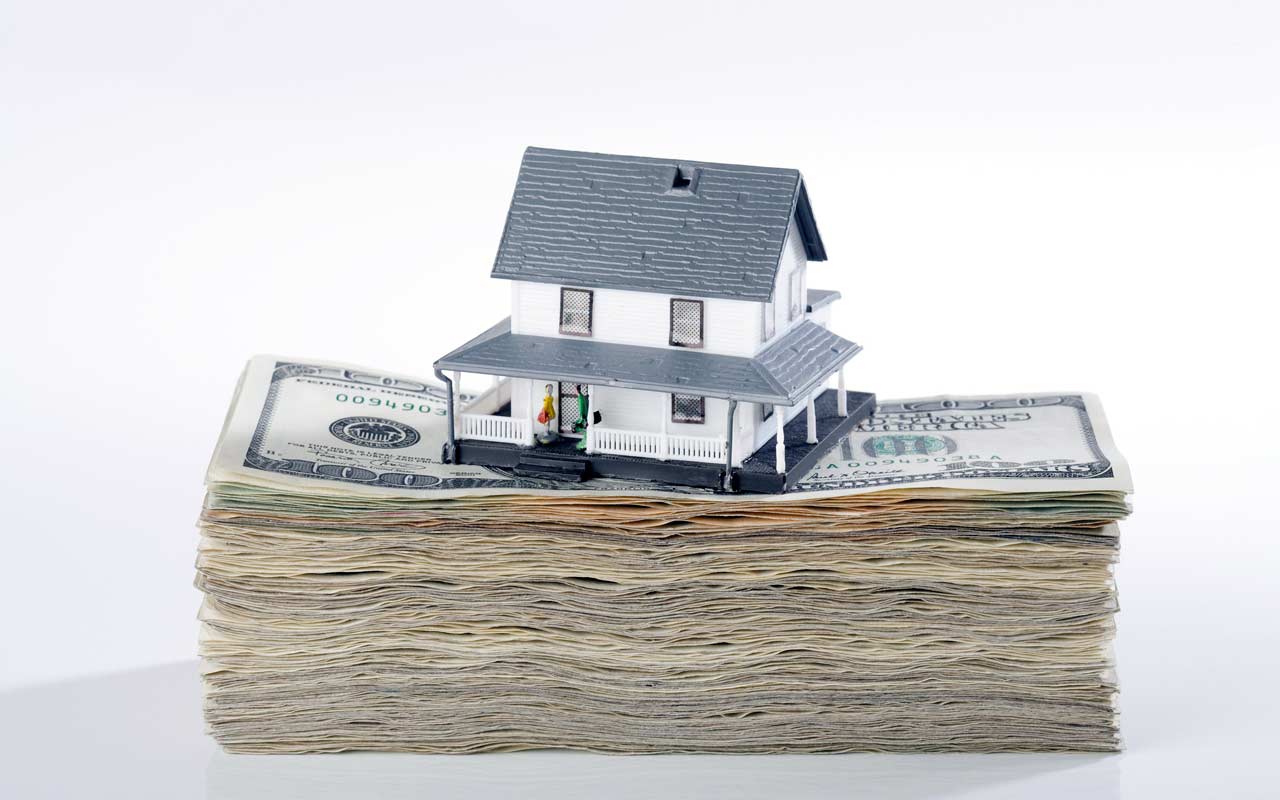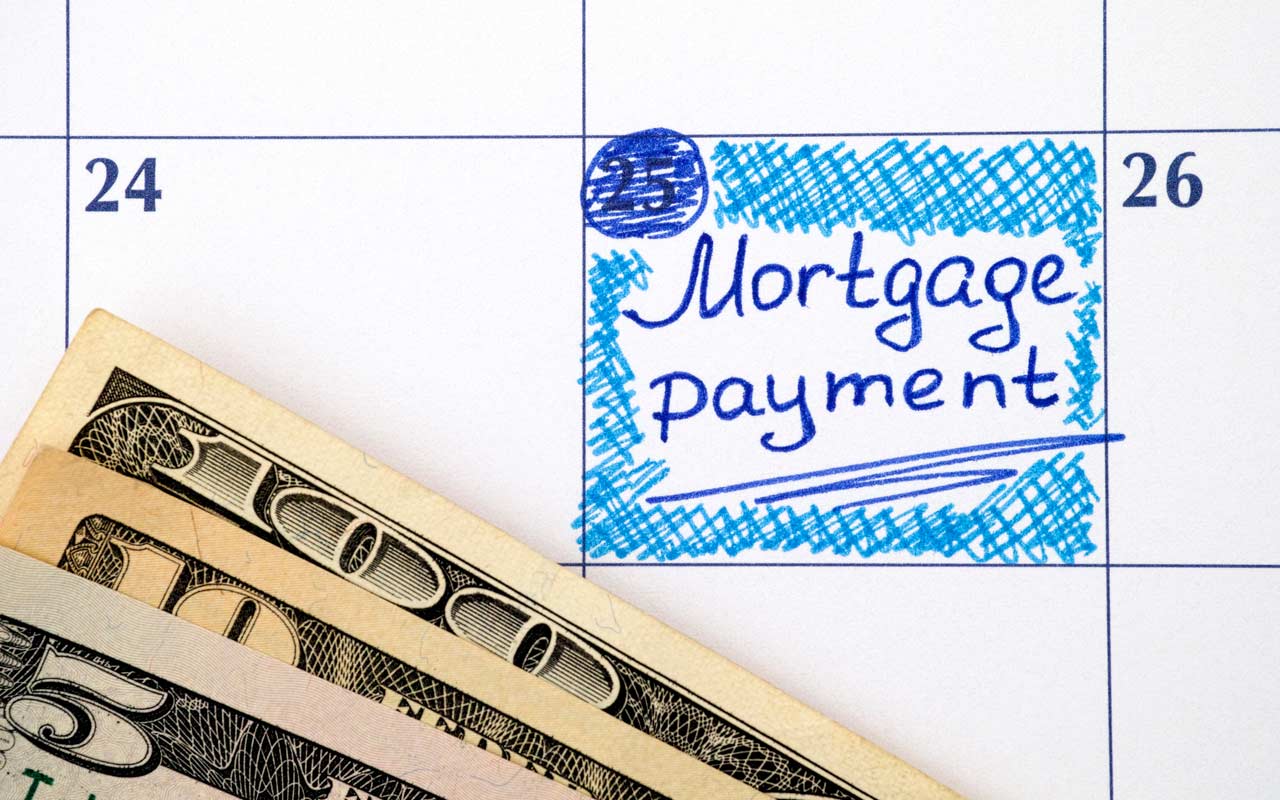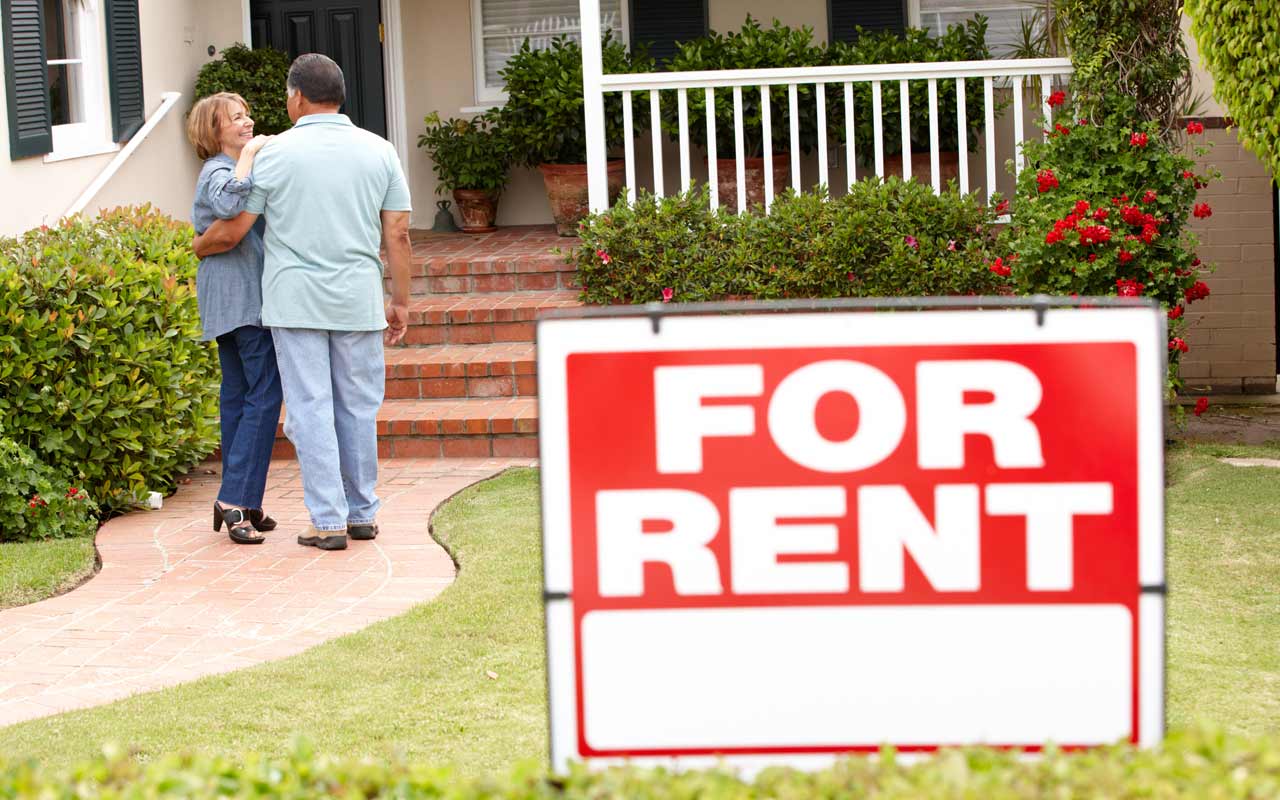7 Ways to Retire Without a Mortgage
Admit it: Whether you're 35 or 65, the prospect of retiring without a mortgage is an attractive one.


Profit and prosper with the best of Kiplinger's advice on investing, taxes, retirement, personal finance and much more. Delivered daily. Enter your email in the box and click Sign Me Up.
You are now subscribed
Your newsletter sign-up was successful
Want to add more newsletters?

Delivered daily
Kiplinger Today
Profit and prosper with the best of Kiplinger's advice on investing, taxes, retirement, personal finance and much more delivered daily. Smart money moves start here.

Sent five days a week
Kiplinger A Step Ahead
Get practical help to make better financial decisions in your everyday life, from spending to savings on top deals.

Delivered daily
Kiplinger Closing Bell
Get today's biggest financial and investing headlines delivered to your inbox every day the U.S. stock market is open.

Sent twice a week
Kiplinger Adviser Intel
Financial pros across the country share best practices and fresh tactics to preserve and grow your wealth.

Delivered weekly
Kiplinger Tax Tips
Trim your federal and state tax bills with practical tax-planning and tax-cutting strategies.

Sent twice a week
Kiplinger Retirement Tips
Your twice-a-week guide to planning and enjoying a financially secure and richly rewarding retirement

Sent bimonthly.
Kiplinger Adviser Angle
Insights for advisers, wealth managers and other financial professionals.

Sent twice a week
Kiplinger Investing Weekly
Your twice-a-week roundup of promising stocks, funds, companies and industries you should consider, ones you should avoid, and why.

Sent weekly for six weeks
Kiplinger Invest for Retirement
Your step-by-step six-part series on how to invest for retirement, from devising a successful strategy to exactly which investments to choose.
Admit it: Whether you're 35 or 65, the prospect of retiring without a mortgage is an attractive one. No more monthly mortgage payments to your home lender means extra money to spend on having fun in retirement. After years of punctual principal-and-interest mortgage payments, it's the least you deserve, right?
And yet, more and more Americans are still carrying a mortgage when they reach retirement age. According to a 2019 report from Harvard's Joint Center for Housing Studies, 46% of homeowners ages 65 to 79 have yet to pay off their home mortgages. Thirty years ago, that figure was just 24%.
There are several smart ways to retire without a mortgage. We've come up with seven that fit a variety of retirement scenarios. Some approaches benefit from an early start, so plan as far ahead as you can. Other mortgage-free retirement options can be pursued even if you're close to signing up for Medicare and Social Security. If your goal is the peace of mind that comes with paying off your home loan before you reach retirement, check out these seven ways to retire without a mortgage.

Make Extra Mortgage Payments
Over time, a few bucks here and there tacked on to your mortgage payment can translate into thousands of dollars saved on interest and years shaved off the repayment period. The trick is to find small ways to cut corners on other household expenses so that you can apply those modest savings toward your mortgage. Simply swapping out traditional incandescent light bulbs for LEDs, for example, can save you $100 a year over 10 years in energy costs. A programmable thermostat can save you up to $180 annually.
A little extra goes a long way. A $225,000 mortgage at 5% over 30 years works out to a monthly payment of about $1,200 (excluding taxes and insurance). You'll pay about $210,000 in interest alone over the life of the home loan. But put an extra $100 a month toward the same mortgage and you'll save nearly $40,000 less in interest and retire the loan five years early.

Refinance Your Mortgage
A surefire way to trim the bill on your home loan is to refinance your mortgage to a lower rate for an equal or greater period of time. You'll enjoy reduced monthly payments and less strain on your bank account. Not a bad idea if money is tight. What you won't gain by doing this is a mortgage-free retirement.
- To pay off your mortgage early via refinancing, you'll need to switch to a shorter-term loan. Let's say you're 50 years old and you have 25 years left on an original 30-year, $225,000 mortgage at 5% and still owe around $200,000. You'd pay about $155,000 in interest on the original mortgage over the remaining quarter century -- and be mortgage-free at 75 years old. For about $320 more per month, plus one-time closing costs, you could refinance to a 15-year mortgage at 4% and save $87,000 in interest. And, of course, you'd be mortgage-free a decade earlier at 65 years old.

Downsize Your Home
Think about it: At a time when you're supposed to be enjoying the simple life, do you really need a formal living room, separate dining room and two spare bedrooms that you never set foot in? If your answer is no, think about downsizing.
- The beauty of downsizing to a smaller home in the same area is that you don't need to say goodbye to your friends, family and community. Of course, beauty can also be found in the fact that you might be able to pay cash for your new, smaller abode. That means no mortgage.
And don't limit your notion of downsizing. Just because you spent the past 30 years in a traditional ranch doesn't mean you need to purchase another ranch with less square footage. Check out conventional alternatives (condos, townhouses) as well as unconventional options (houseboats, RVs or even tiny retirement homes).

Relocate to a Cheaper City
Can't find the right place at the right price to retire in your hometown? Retire somewhere cheaper. Sure, there will be sacrifices, but what you'll give up in familiarity you'll make up for financially. The best places to retire combine ample activities with affordable real estate. And moving to an affordable locale will boost the odds that you won't have to take out a new mortgage.
- Home prices aren't the only factor when considering relocation. You need to weigh taxes, too. In New Jersey, for example, annual property taxes alone run $2,530 per $100,000 of assessed home value. You'd pay just $1,000 per $100,000 of assessed value in Georgia, one of the 10 most tax-friendly states for retirees in the U.S.

Get a Roommate
Don't discount the financial advantages of taking on a roommate. By letting out a spare bedroom and applying the rent you collect to your mortgage, you can knock years off the time it'll take to repay the loan. An extra $250 a month toward a $150,000, 30-year mortgage at 5% will erase the debt 12 years early. An extra $100 a month retires the mortgage six and a half years early.
The benefits to your bottom line extend beyond the mortgage. Rental income can help defray the cost of utilities (gas, electricity, cable, Internet), maintenance and other home-related expenses. GoBankingRates, a personal-finance website, puts the cost of maintaining the average home at $1,204 a month. As a bonus, a roommate can help with chores and provide companionship.

Rent Instead of Owning
A guaranteed way to retire without a mortgage is to sell your current home at a profit and use the proceeds to rent a place to live in during retirement. Although it might seem as if you'd just be writing a check to a landlord instead of a lender, the differences between renting and owning can be considerable.
- Among the advantages of renting in retirement: no leaky roof to replace, no property taxes to pay and no equity tied up in illiquid real estate. There's also no residential albatross around your neck preventing you from moving around as you wish in retirement. You can even save a few bucks on living expenses such as insurance when you rent. The average annual premium for renters insurance is $185, compared with $1,192 for homeowners insurance, according to the Insurance Information Institute.
As for the popular tax breaks that have long supported arguments in favor of homeownership, some of those home-related deductions were limited or eliminated by the new tax law passed in 2017. The doubling of the standard deduction that started with 2018 returns also means fewer taxpayers are itemizing, which further limits access to remaining home-related tax breaks.

Move In With the Kids
Sure, for some families the idea of parents retiring to the granny suite above their kid's garage is a nightmare of clashing generations and crimped styles. But, in your case, perhaps it's a dream scenario whereby you get to watch and help the grandkids grow up. You can provide care now and, later, be cared for.
- Aging parents moving in with adult children is on the upswing. According to a Pew Research Center study, of the 79 million adults in the U.S. living in shared households, 14% are parents residing in their kids' homes. In 1995, the share of parents living under their kids' roof was 7%.
Everyone can win on the financial front. Not only will the adult kids save on child care, but retired parents can help out with the household bills, too. And, of course, by moving in with their son or daughter, the retired couple can ditch their mortgage, pocket the equity and spend it on, say, an RV to get away from the crowd whenever they want.
Profit and prosper with the best of Kiplinger's advice on investing, taxes, retirement, personal finance and much more. Delivered daily. Enter your email in the box and click Sign Me Up.

-
 Quiz: Do You Know How to Avoid the "Medigap Trap?"
Quiz: Do You Know How to Avoid the "Medigap Trap?"Quiz Test your basic knowledge of the "Medigap Trap" in our quick quiz.
-
 5 Top Tax-Efficient Mutual Funds for Smarter Investing
5 Top Tax-Efficient Mutual Funds for Smarter InvestingMutual funds are many things, but "tax-friendly" usually isn't one of them. These are the exceptions.
-
 AI Sparks Existential Crisis for Software Stocks
AI Sparks Existential Crisis for Software StocksThe Kiplinger Letter Fears that SaaS subscription software could be rendered obsolete by artificial intelligence make investors jittery.
-
 States That Tax Social Security Benefits in 2026
States That Tax Social Security Benefits in 2026Retirement Tax Not all retirees who live in states that tax Social Security benefits have to pay state income taxes. Will your benefits be taxed?
-
 What to Do With Your Tax Refund: 6 Ways to Bring Growth
What to Do With Your Tax Refund: 6 Ways to Bring GrowthUse your 2024 tax refund to boost short-term or long-term financial goals by putting it in one of these six places.
-
 What Does Medicare Not Cover? Eight Things You Should Know
What Does Medicare Not Cover? Eight Things You Should KnowMedicare Part A and Part B leave gaps in your healthcare coverage. But Medicare Advantage has problems, too.
-
 12 Great Places to Retire in the Midwest
12 Great Places to Retire in the MidwestPlaces to live Here are our retirement picks in the 12 midwestern states.
-
 15 Cheapest Small Towns to Live In
15 Cheapest Small Towns to Live InThe cheapest small towns might not be for everyone, but their charms can make them the best places to live for plenty of folks.
-
 Best Cold Weather Places to Retire
Best Cold Weather Places to RetirePlaces to live Some like it hot; others, not so much. Here are the 12 best places to retire if you can't stand the heat.
-
 15 Reasons You'll Regret an RV in Retirement
15 Reasons You'll Regret an RV in RetirementMaking Your Money Last Here's why you might regret an RV in retirement. RV-savvy retirees talk about the downsides of spending retirement in a motorhome, travel trailer, fifth wheel, or other recreational vehicle.
-
 The 24 Cheapest Places To Retire in the US
The 24 Cheapest Places To Retire in the USWhen you're trying to balance a fixed income with an enjoyable retirement, the cost of living is a crucial factor to consider. Is your city the best?
